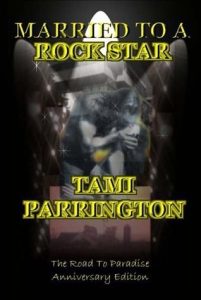I haven’t read Stephenie Meyer’s Breaking Dawn. I read Twilight and while I like cotton candy, I can only take so much. Like, one cone every 10 years or so or.
By now I’m sure everyone’s heard about the backlash against what is reputed to be the shoddy workmanship of Breaking Dawn and the push to return it to the bookstores after having read it. Mind you, the complaints ranged from the fact that Meyer tore her own world’s rules asunder to the poor editing job (i.e., grammar, spelling, typos). I found more than a few of those in Twilight and it bugged me then that a major publisher would release it like that. It looked so [sneer] vanity published.
I’ve heard ad nauseam about the gatekeepers, the agents and the editors, whose self-appointed Prime Directive is to keep out the unwashed masses of illiteracy who think they have a bestseller in them somewhere. They are there to not only 1) screen out the dreck and vet work that is potentially money-making, but once that is finished, to 2) put out a product that is well edited, well designed, and doesn’t look like it’s [sneer] vanity published.
Well, with Twilight, they did the first part right: They found a piece that would make money.
With the second part, they dropped the ball (especially with regard to Breaking Dawn) and Meyer ended up being put on the spot for a) bad writing, b) violation of her world’s rules, and c) bad editing in all stages.
I think that’s totally unfair.
I’ve been thinking about one particular Breaking Dawn post/thread on Dear Author for over a month now, wherein the commonly held die-hard fan opinion [that Meyer wrote by whimsy alone (putting forethought and craft aside)] was reiterated by author K.Z. Snow:
What’s so irksome is this: Meyer seemed to have a serious–and, to me, really appalling–lack of commitment to and respect for the craft. So shoot me for idealizing what we do, but one doesn’t become a writer on a freakin’ whim. I’m not surprised there’s been a degeneration from one book to the next.
and I opined:
I think this is clearly a case of wringing blood out of a turnip by the publisher and editors. They’re the ones who control the channel to the marketplace. If Meyer doesn’t have a commitment to the craft, who’s to blame? Meyer? No. The publisher and editors who facilitated her in that. If she has any thought about “craft” at all, I’d be surprised–and that’s not her fault. She hasn’t been required to to sell a gazillion+1 books.
Nora Roberts disagreed with me:
Yes, it is. Her name’s on the book. It’s her work. […] But it is the author who’s responsible for what’s on the page.
And this comment is what’s had me thinking about this for so long after it’s been done and gone.
Ms. Roberts’s comment is borne out in the fact that Meyer alone was held accountable for what’s widely perceived as shoddy workmanship. Do we know who her editors (content, line, and copy) are? Undoubtedly somebody does, but they aren’t the ones being burned in effigy. I wonder if they got dragged into a meeting to find out why so many die-hard fans took their books back? I wonder if they got sent to Remedial Editing? I wonder if Meyer went back and said, “Hey, why didn’t you do your job? You made me look bad and you’re supposed to make me look good. You’re the gatekeepers.”
She was also responsible for selling those gazillion+1 books and making a helluva lot of money for those gatekeepers, whimsy and shoddy workmanship and all.
Yet why should Meyer bear sole responsibility for what is obviously a case of “Bless her heart. It ain’ her fault; she doan know no better”? Moreover, she doesn’t know she “doan know no better” as evidenced by the fact that she’s trying to defend the book by blaming readers. “They just didn’t get it.” Well, maybe they didn’t, but you don’t say that in public. If you can’t keep from digging yourself into a hole, shut the hell up.
(And ahem, Stephenie. You’re college educated. Could you not have gone through your manuscript to make sure you caught all the typos? Oh, right. That was the copy editor’s job, wasn’t it?)
Meyer’s editors, in looking for a quick buck sooner rather than later, threw Meyer to the wolves. They, as the self-appointed gatekeepers should have done their jobs and when they didn’t, they let her take the fall because, as Ms. Roberts points out, it’s her name on the book.
They also threw the readers and die-hard fans to the wolves–who howled loud, long, and with their checkbooks. Who knows how many die-hard fans felt betrayed who did not take their books back and did not burn them (as some did)?
I have come to no conclusion except that, at this point, I think both Ms. Roberts and I are right. But how can that be? I don’t know, because obviously Meyer was held accountable for it, but she wasn’t the one who enthusiastically put it in the editorial pipeline. I can’t think she had much control over it after that other than galley proofs.
Right now, though, I only have two questions:
1. What, again, are the gatekeepers for?
2. How did such work warrant such gorgeous covers?
no images were found


 Phyllida and the Brotherhood of Philander
Phyllida and the Brotherhood of Philander